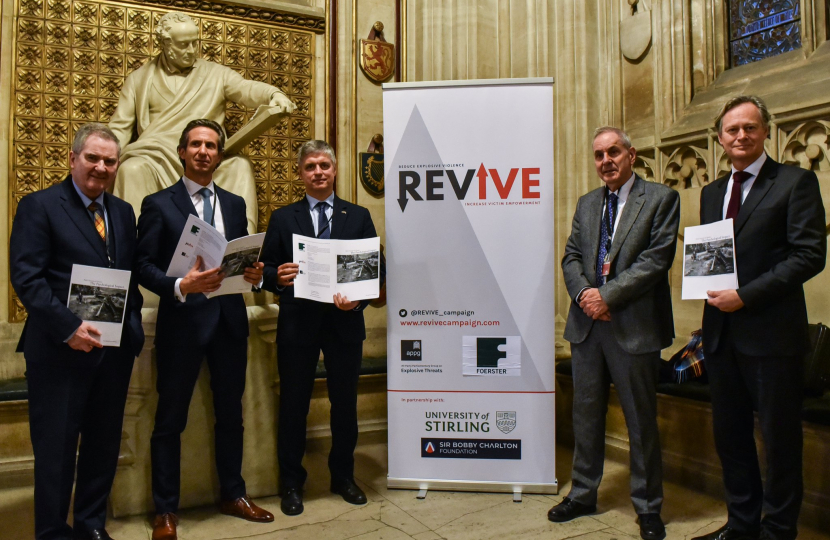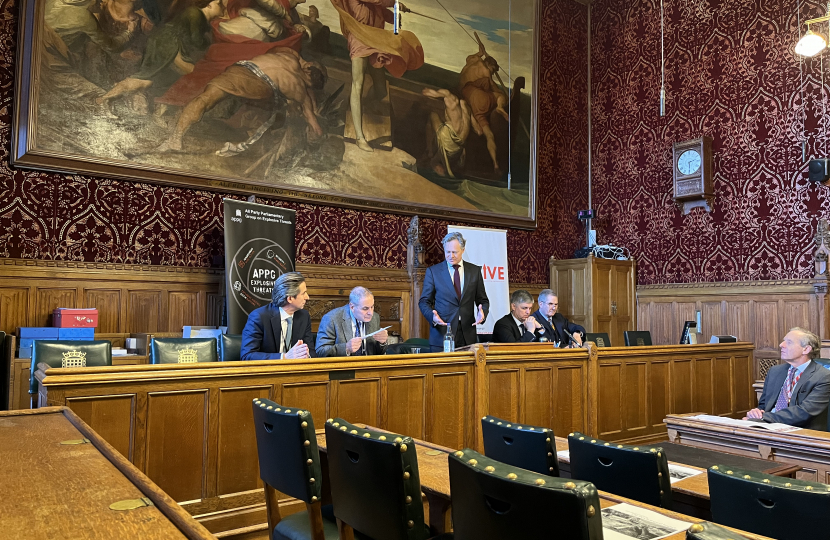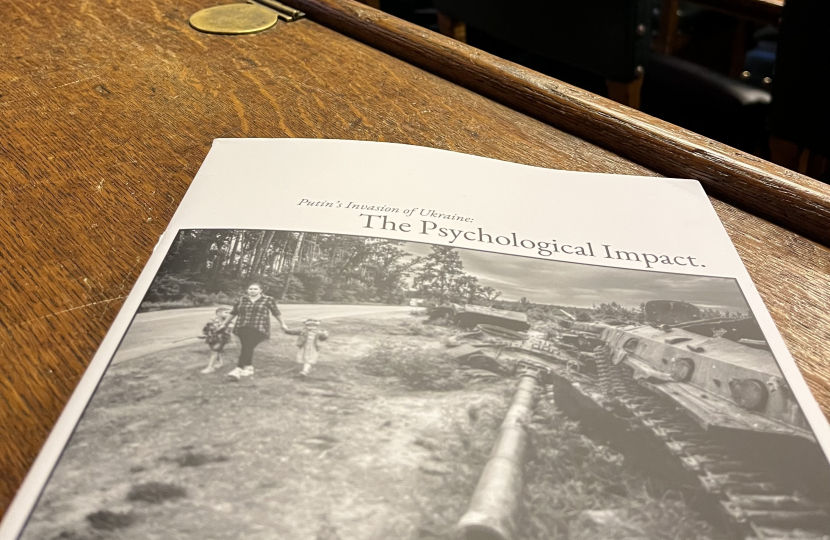As Chairman of the APPG on Explosive Weapons, Matthew has launched a report on the psychological effects of weapons on the civilian population in Ukraine.
The report, entitled “Putin’s Invasion of Ukraine: The Psychological Impact”, was commissioned by the APPG and produced by researchers from Stirling University and funded by Foerster Group. In attendance at the launch was HE Vadym Prystaiko, the Ukrainian Ambassador to the UK.
A significant effect of the conflict has been the creation of conditions that affect civilians, especially women and children.
There is often an underlying assumption that during any conflict, men will fight and women will flee. However, even if the matriarch of a family evacuates from a war zone it does not follow that the conflict is left behind. Refugees of war face additional problems in the places where they seek sanctuary, including mental health issues, an inability to access public services, a sense of dislocation, rejection by the local population and a desire to return to their homes.
The lack of communication between families adds to these concerns leaving both adults and children emotionally agitated, tense, irritated and depressed. Children often experience an emotional and educational regression, performing at a lower level than their peer age group which leads to further problems as they advance through education.
The report highlights assistance being provided by the United Kingdom with a three-year £100 million package of aid, and an expanded visa route for Ukrainians and relatives who have family in the UK. According to UNHCR up to December 2022, the UK has taken in 147,800 Ukrainian refugees. It also highlights aid provided by Germany, France, Spain, Poland, Slovakia and Israel. This includes housing, education, financial support and psychological services.
Matthew said: “The report produces conclusions that are often overlooked by government agencies. By shining a spotlight on the experience of people fleeing from conflict, we can see how public services need to adapt.
“Many people from Ukraine want to return to their former lives and we need to ensure that the trauma they have experienced is addressed to prevent future problems.”
A full copy of the report can be found here.




